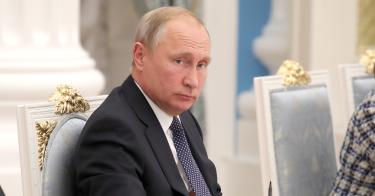A little-noticed row between U.S. allies Hungary and Ukraine has been simmering for the past year. This month, it escalated dramatically.
Last week, Hungary summoned Ukraine’s Ambassador over supposed “death lists” of ethnic Hungarians living in Ukraine. The list, which according to Hungary, has appeared on the website of the Ukrainian nationalist group Myrotvoretz and includes the names of some 300 Ukrainians who allegedly have also taken up Hungarian citizenship.
Earlier this month the countries exchanged diplomatic expulsions over accusations that Hungarian diplomats in Ukraine were issuing passports to ethnic Hungarians. Ukrainian law proscribes dual citizenship.
Meanwhile, Hungary continues to block meetings of the NATO-Ukraine Commission, the body responsible for building that country’s relationship with NATO. Ukraine’s integration into Western structures is for now effectively stymied, and that plays into Russia’s hands.
It is time for the United States to step in and help resolve a dispute that has gone on for too long already.
At its core, the dispute revolves around the approximately 156,000 Hungarian speakers -- or ethnic Hungarians, language often being the central element of ethnicity -- living in western Ukraine. In September 2017, Ukrainian President Poroshenko signed a law that requires most Ukrainian secondary schools to teach in Ukrainian. The law allows instruction in other languages to be taught as a separate subject.
Ukraine has faced a backlash from countries such as Hungary and Romania -- Ukraine also has a small group of Romanian-speakers. Kyiv asked the Venice Commission, which advises the Council of Europe on constitutional matters, for its opinion on the law. The Commission noted that the ambiguous text of the law means that much rests on its implementation.
However, it also noted, “it is a legitimate and commendable aim for states to promote the strengthening of the state language and its command by all citizens, and to take action for its learning by all, as a way to address existing inequalities and to facilitate more effective integration of persons belonging to national minorities into society.”
This is a sound principle, in Ukraine, Uruguay, or Utah.
The Trump administration has supported Budapest in its ongoing political battle over efforts to force the sovereign nation to accept mandatory EU quotas for migrants. In so doing, the United States is rightfully taking the view that the democratically elected leadership in Budapest is better positioned to determine what is best for the people of Hungary than unelected bureaucrats in Brussels.
And what’s good for the goose is good for the gander. Just as the United States is correct in recognizing and supporting Hungarian sovereignty, it must make it clear to Budapest that it takes a dim view of Hungary’s infringement upon Ukrainian sovereignty.
At heart here is Hungary’s peculiar view of what constitutes the Hungarian nation. The 1920 Treaty of Trianon tore Hungary asunder; its redrawn borders left many Hungarian-speakers living within the borders of its neighbors. Hungary claims it is not pursuing a revanchist dream of getting back these lands, but it does insist that these Hungarian speakers form part of the Hungarian nation, have a right to speak their language and even vote in Hungarian elections. Thus the problem with an already embattled Ukraine.
And there’s the rub. Hungary’s conception of what a nation is aligns with Russia’s own conception of nationhood. The Kremlin has used that concept to justify its illegal invasion of Ukraine and subsequent land grabs.
Not coincidentally, Russia recently cited Hungary’s position on Ukraine’s language law as proof that the law is ill conceived. With its stubborn insistence on its rights over other countries’ citizens, Hungary’s government is now doing what its worst critics in the United States always accuse it of: being a patsy for Moscow.
By blocking the growing relationship of Ukraine with the West, most prominently in obstructing the NATO-Ukraine Commission, Hungary plays right into Vladimir Putin’s hands. Russia’s goal is to keep Ukraine in perpetual limbo, unable to fully integrate into the West, stuck in a morass of a corrupt economic and political oligarchy.
Putin will use any means at his disposal to achieve this end, and for now at least, Hungary’s reaction to Ukraine’s language law is providing the Kremlin a valuable assist.
This piece originally appeared in Real Clear World




